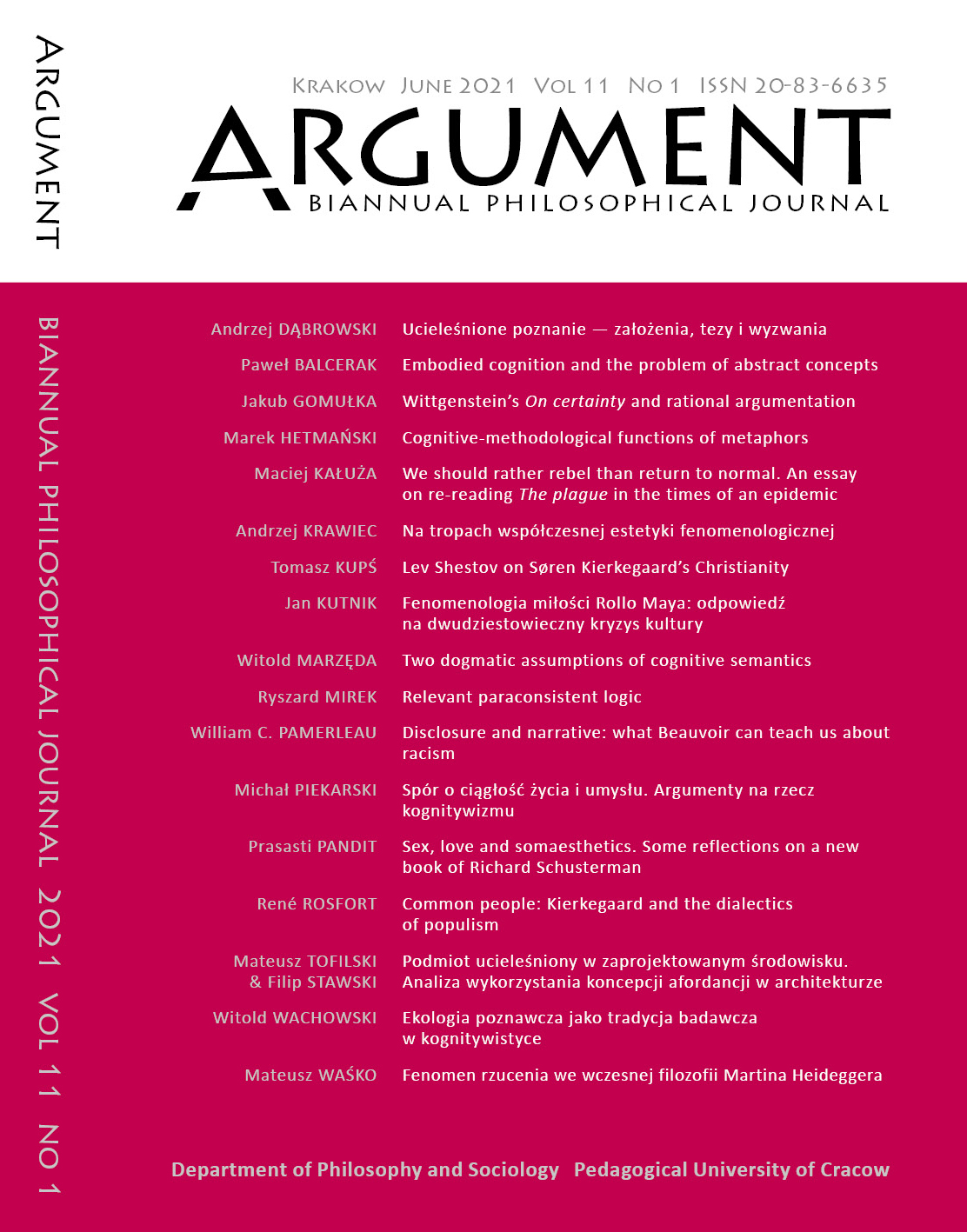Cognitive-methodological functions of metaphors
DOI:
https://doi.org/10.24917/20841043.11.1.5Keywords:
metaphor; conceptual metaphor theory; embodied metaphors; embedded metaphoricity; heuristics and the methodology of metaphors; scientific discourseAbstract
The paper analyzes the cognitive functions of metaphors present in both colloquial and scientific discourse. First, presented is the history of research into linguistic metaphors, followed by a discussion of the psycholinguistic turn towards metaphors as thought schemas (George Lakoff and Mark Johnson), as well as metaphoricality embodied in gestures, images and behaviors and their socio-cultural contexts. Based on the analysis of metaphors in the natural sciences, mainly in physics (Max Black, Mary Hesse, Thomas Kuhn) as well as in psychology (Douwe Draaisma), the heuristic and methodological functions of metaphors in science are discussed. Finally, on this basis, a general model of the cognitive functions of metaphor is constructed in which, apart from the cognitive communicative functions, emphasized are also the pragmatic aspects of metaphorical thinking.


